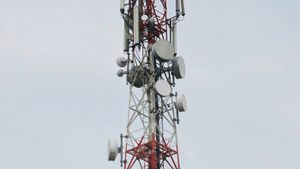JAKARTA - A large hospital network in the US has suffered a serious security hack that caused its computer records to go offline. The ransomware attack can even affect the quality of healthcare provided, possibly even endangering the lives of patients.
According to industry-focused news site HealthCareDive, the attack was described as an IT incident by CommonSpirit Health and was reported on October 3, 2022.
It is a large hospital network with 1,000 treatment sites and 140 hospitals across the country so that thousands of patients are affected. The current solution, according to a statement on the CommonSpirit Health website, is to take certain systems offline.
Over the course of this past week, we have been managing a response to a cyberattack that has impacted some of our facilities. Patient care remains our utmost priority and we apologize for any inconvenience this matter has created. For more info. visit https://t.co/q5DnaQI81S
— CommonSpirit Health (@commonspirit) October 12, 2022
Doctors and nurses have become accustomed to 21st century technology and rely on computer records to treat patients, plan treatment options, and organize data. Going back to paper in an already busy health care system should make the job excruciating. We never know how many important details slip through during a busy day.
Even more concerning, patient services are delayed because extra time has to be taken to check information in this chaotic work environment. For example, there are patients whose surgery is delayed and others who cannot get a CT scan despite having a brain haemorrhage.
SEE ALSO:
According to a Digital Trends report, a large hospital network run by CommonSpirit Health was recently hit by a ransomware attack, which involved hackers gaining access to sensitive information and threatening to destroy or distribute the data if fees were not paid.
The difficulty in solving this type of problem is that there is no guarantee that paying the ransom will help. On the other hand, if the IT team is unable to recover critical information and there is no backup, then there is no other option.
This is not the first time ransomware attacks have weakened the US healthcare industry and the frequency of attacks appears to be increasing. Cybersecurity is a growing concern among all industries, but when it comes to health, it can be a life-threatening incident.
The English, Chinese, Japanese, Arabic, and French versions are automatically generated by the AI. So there may still be inaccuracies in translating, please always see Indonesian as our main language. (system supported by DigitalSiber.id)


















